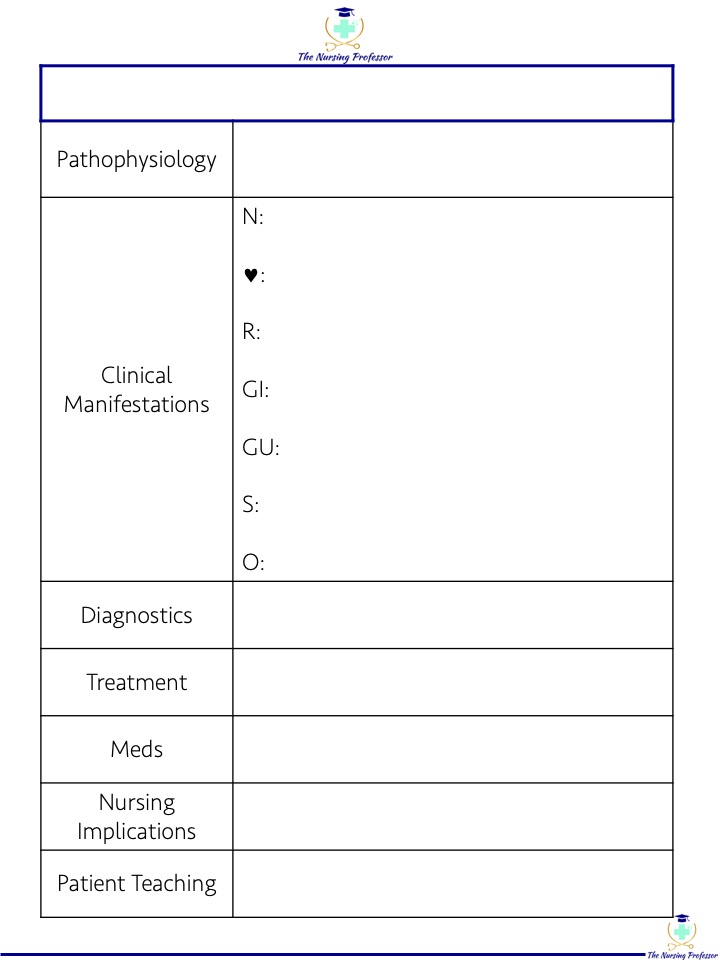Knowing how to study and what to study for your nursing exam can be overwhelming. There couldn’t be more information crammed into each lecture and it is hard to ferret out which information is important and which is superfluous. What is the NEED TO KNOW and what is the NICE to know?
Didn’t it seem like the professor highlighted EVERYTHING and NOTHING at the same time?
It is important and vital to your nursing school success to learn how to study in nursing school, which is often far different than studying for most other courses. For one thing, you will carry this information into the clinical setting and use it to care for other humans and save lives. And sadly, it isn’t just knowledge comprehension. It would be far easier if it was just about memorizing facts…but it isn’t. And it is VERY important to understand that from the start. Memorizing information will only take you so far in nursing school. You must truly LEARN the material and be able to analyze what you are seeing to make informed decisions on the exam and at the bedside. Don’t get me wrong, you will have to memorize a fair amount of material, I am just saying that you cannot count on memorization alone to get you through school.
1) Having a systematic approach when you study is important, as it can help you more easily organize the information and it will decrease the chance of missing key components.
I recommend using this study template for each disease process that you learn about in school.
It follows a very systematic approach, that allows you to easily organize the material and quickly recaps the need to know information.
Here is a completed study template, to give an idea of how to use it to study.
2) Pathophysiology IS IMPORTANT.
Learn it for each disease process. I have heard numerous nursing professors and instructors say that you don’t know need to know it or worry about it - but I strongly disagree. If you can know what is happening within the body for each process, then it is much easier to figure out what clinical manifestations you will see in your patient and determine what treatment and intervention you will need to carry out. So learn it. Not every tiny detail, but you should be able to have a broad overview of the pathophysiological process happening.
3) Determine your preferred learning style and use it. Unsure of what I mean by that? You can read more about it here.
Start implementing these 3 steps right away as you learn new material and I have no doubt that the time you spend studying will be more efficient and effective.
Looking for any even easier way to study? - a way that seriously eliminates figuring out what to study and focus on?… join RN School. The trainings included highlight the need know information for every disease process and then you can test your knowledge with the practice questions included. :)



